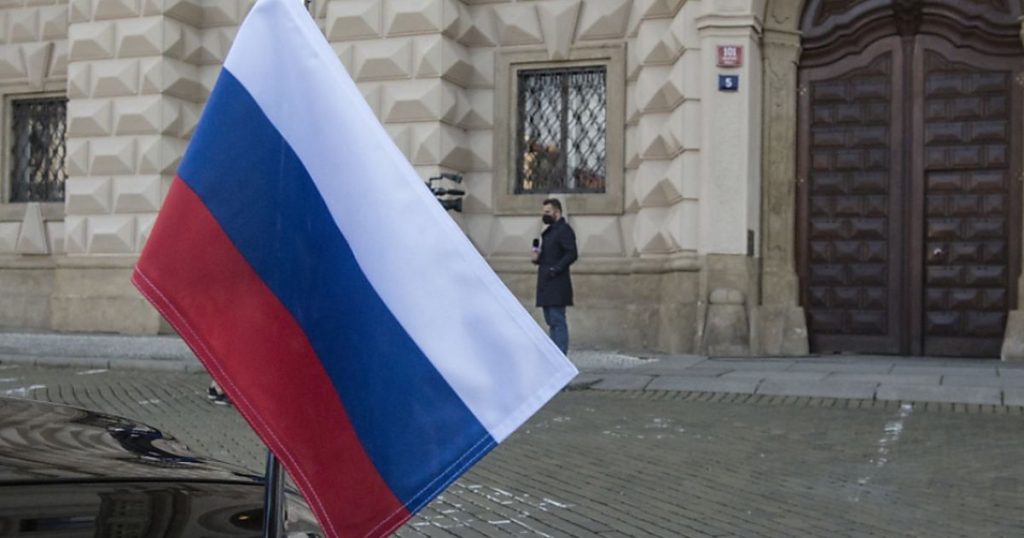The Czech Republic decided, on Thursday, to radically reduce the number of staff at the Russian embassy in Prague. Czech Foreign Minister Jakob Kulhanek said in an extraordinary press conference with Prime Minister Andrej Babis and Deputy Prime Minister and Minister of Interior Jan Hamsik that Russia has been given a grace period until the end of May. The Czech Republic now has 24 employees at its embassy in Moscow, while Russia has 94 employees in Prague.
This means that Russia will have to withdraw 70 employees, according to Czech media. Kulhank said that the decision announced by the Czech Republic is in line with the relevant Vienna Convention (Article 11). So it is a “standard process”. Kulhank justified this action by saying that Russia had responded “inappropriately” to the expulsion of 18 employees from the Russian Embassy in Prague in connection with the 2014 explosions at the munitions dump in Verbatis, South Moravia. The Czech Republic attributes the bombings that killed two people to Russian intelligence, which Russia strongly denies.
Speaking at the press conference, Babis said that the Czech Republic is a sovereign and self-confident country. “We are not happy, we do not want an escalation. But we hope that Russia will recognize the inadequacy of its response,” the prime minister said, referring to the Czech ultimatum on Wednesday.
With this warning, the Czech Republic demanded the return of 20 employees expelled from the Czech Embassy in Moscow. This ultimatum expired on Thursday at 12:00 noon, and Russia did not respond to the request. Kremlin spokesman Dmitry Peskov said only that “there is no possibility of talking to Russia in the form of demands,” and he spoke of “hysteria.”
The Czech Republic is also upset that Russia has expelled more employees than the Czech Republic. In addition, the Czechs had to leave Moscow within 24 hours, while Prague granted the Russians 48 hours. Babis has repeatedly asserted that President Milos Zeman, seen as pro-Russian, approves of the government’s action in the diplomatic dispute. However, Zeman personally has yet to comment on the unrest. He announced a statement for next Sunday.
Meanwhile, the Czech Republic has received assurances of support for its NATO partners. “The Allies express their deep concern over the destabilizing measures that Russia continues to implement in the Euro-Atlantic region (…),” said a NATO statement released in Brussels on Thursday. We stand with the Czech Republic in full solidarity.

“Food practitioner. Bacon guru. Infuriatingly humble zombie enthusiast. Total student.”








More Stories
Kyiv: Russian Kursk offensive halted
US Presidential Election: Former US Government Officials Warn Against Donald Trump's Election
Netherlands wants to leave asylum system